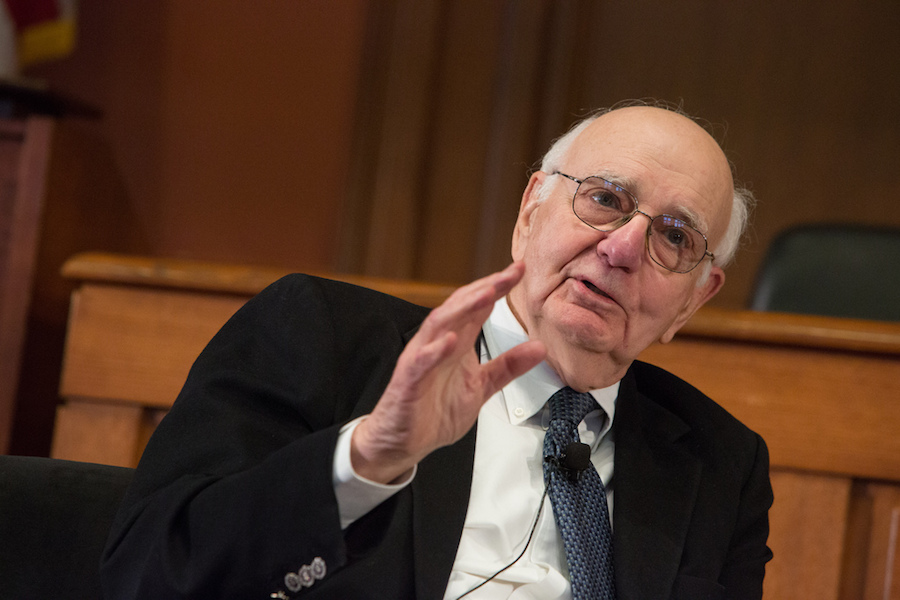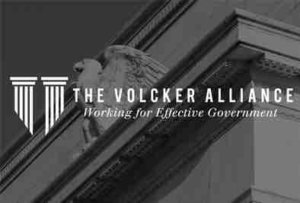The Volcker Alliance has launched a series of new papers with important proposals for reforming financial regulations to guard against future crises
Eight years have passed since the “Great Financial Crisis” of 2008. The efforts of legislators and financial regulators here and abroad have gone a long way toward protecting the safety and soundness of our large banks and financial institutions. An approach to assure the orderly liquidation of failing financial institutions is being developed in an effort to end concerns about “too big to fail” and the related “moral hazard.”
Yet, the system remains vulnerable.
Highly leveraged and interconnected financial firms continue to rely on panic-prone funding structures, posing the clear risk of contagious “runs,” the central and highly damaging characteristic of the 2008 crisis. Many other documented crises in history, including the banking collapse in the early 1930s in the United States, demonstrate the fragility of borrowing short to lend long.
Today, it is not the heavily regulated traditional commercial banks that are the main source of concern. Rather, it is the lightly regulated nonbank financial institutions that are deeply reliant on uninsured short-term debt that pose significant risk. Moreover, critical elements in the market infrastructure need attention.
The point is not to inhibit the risk taking that is a vital characteristic of healthy markets, or to prevent the failure of individual institutions. Instead, we need protection against the excesses that too easily cascade into a systemic crisis, impairing the basic functioning of the financial system, with huge costs to jobs, businesses, and economic growth.
Events before and after the recent crisis have confirmed that the present regulatory framework, with its redundancies and inconsistencies, simply is not up to the challenge. Timely and effective oversight of the complex and transforming “shadow banking” system is absent, while some regulations may bear too heavily or redundantly on the provision of essential customer services by true community banks.
The political dialogue has instead been preoccupied with “breaking up” the biggest banks or restoring “Glass-Steagall,” the law that separated commercial and investment banking. Those may be relevant concerns in terms of promoting ethical and competitive banking practices; of enhancing the ability of managements to oversee exceptionally large, complex, and dispersed enterprises; and of reducing conflicts of interest.
But let not that debate divert our attention and energy from the more pressing challenge of better assuring the stability of the modern financial system and its functional effectiveness, however large and diversifed its individual components. This report sets out several constructive paths toward that end, dealing both with the critical vulnerabilities and the dysfunctional regulatory structure. It deserves serious consideration.
Unfinished Business: Banking in the Shadows





